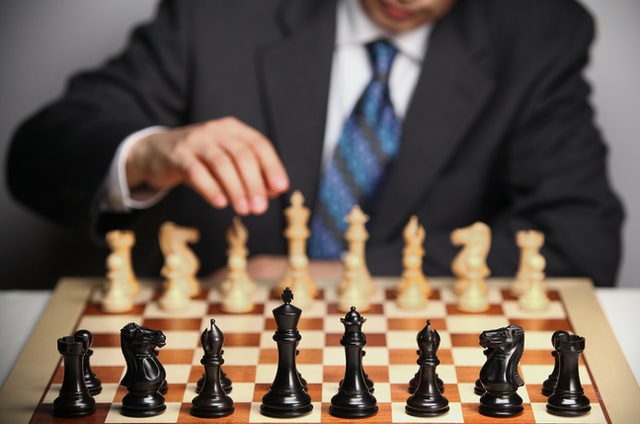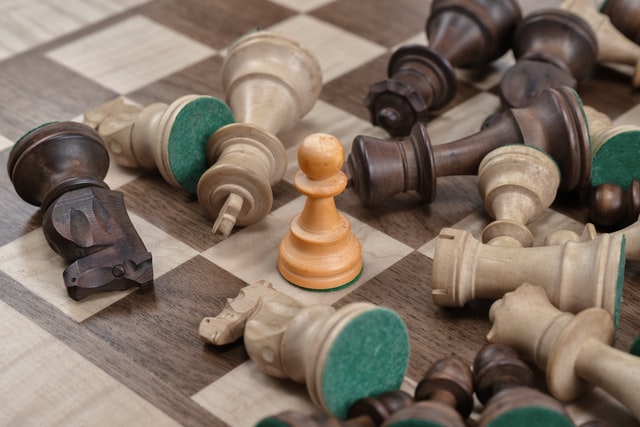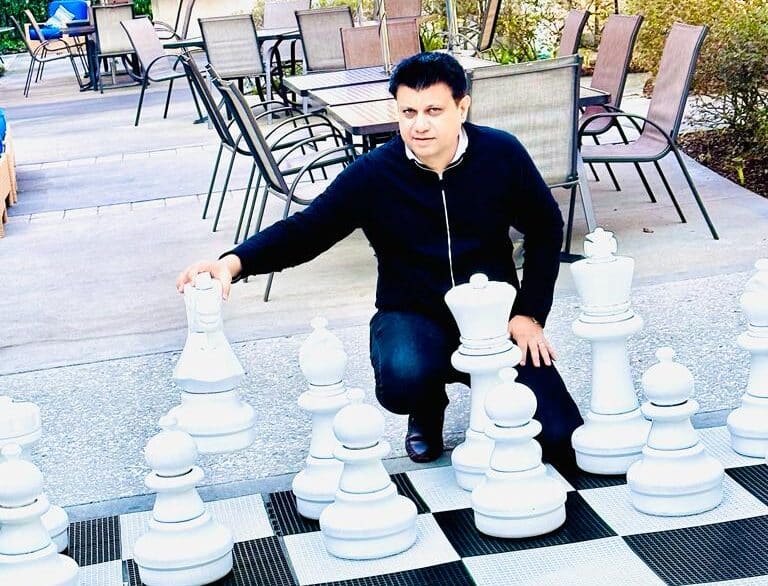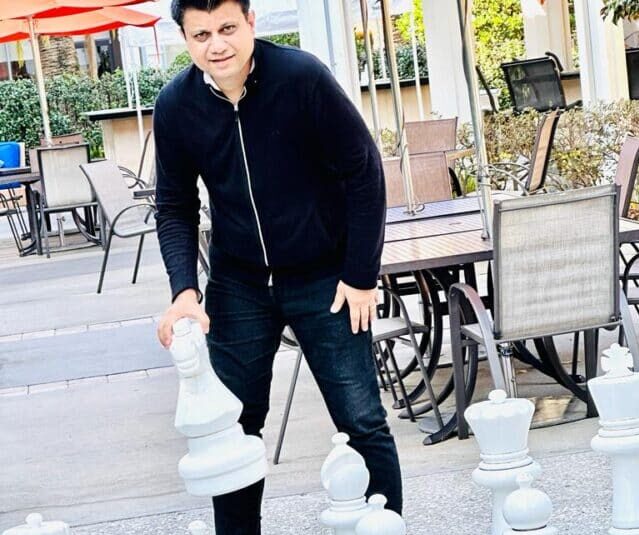In the game of chess, every move counts. It’s a game of strategy, foresight, and calculated risks. But did you know that chess can also be a powerful tool in the business world? In this fast-paced and competitive landscape, mastering the boardroom is essential for success. Just like in chess, making the right moves at the right time can elevate your business skills from being a mere pawn to becoming a strategic king.
This article will explore how the principles of chess can be applied to enhance your decision-making abilities, improve your problem-solving skills, and ultimately help you navigate the complexities of the corporate world with ways Cultivate Self-Confidence and finesse.
Whether you’re a seasoned executive or an aspiring entrepreneur, understanding the parallels between chess and business can give you a competitive edge that will set you apart from the rest. So, sharpen your mind, prepare your strategy, and let’s delve into the world of chess and its invaluable lessons for the boardroom.
Table of Contents
The correlation between chess and strategic thinking

Chess is often referred to as the “game of kings” because it demands strategic thinking and planning, much like the business world.
For example, just like in chess, in business, you must analyze the market, anticipate competitor moves, and craft a plan for success. In a chess game, you consider how every move affects the outcome, just like how in business, evaluating the broader impact of decisions helps you stay ahead. Thinking several moves ahead is crucial in both chess and business, as anticipating trends or competitors’ actions can give you a significant edge.
For instance, Amazon anticipated the rise of e-commerce and pivoted from being a bookstore to a global online marketplace. This long-term strategic thinking is comparable to planning for several moves ahead in chess.
Developing critical thinking skills through chess

Critical thinking is essential in both chess and business. In chess, you constantly analyze the board, weigh the consequences of each move, and make calculated decisions. Similarly, in business, critical thinking helps you evaluate complex situations, assess risks, and make informed judgments.
A perfect example of this is how Netflix transitioned from a DVD rental service to a streaming giant by analyzing emerging technologies and shifts in consumer preferences. Just like in chess, where you anticipate your opponent’s response, Netflix assessed the changing landscape and adapted their strategy accordingly.
Chess as a tool for improving decision-making abilities

In both chess and business, each decision has long-term consequences. Every chess move can lead to a game-winning combination or a significant setback. Similarly, in business, every decision—whether it’s hiring, launching a product, or entering a new market—can either make or break the company’s success.
For instance, Apple’s decision to pivot and focus on design innovation under Steve Jobs can be compared to making a pivotal chess move. The company’s strategic thinking, risk-taking, and decision-making turned Apple into one of the most valuable companies globally.
Enhancing problem-solving skills through chess

Problem-solving is at the heart of both chess and business. In chess, you frequently face challenges and must devise strategies to navigate them. Similarly, in business, obstacles like economic downturns, market saturation, and customer dissatisfaction require creative solutions.
Take Tesla as an example: When Tesla faced significant manufacturing issues, CEO Elon Musk approached the problem by thinking outside the box and sought innovative solutions, much like a chess player who devises new strategies after an opponent disrupts their initial plan.
Building patience and resilience with chess

Both in chess and business, patience and resilience are vital virtues. In chess, sometimes you must wait for the right moment to make your move, while in business, waiting for the right opportunity can pay off. Chess also teaches resilience by forcing players to learn from their losses and bounce back with new strategies.
In business, Walt Disney’s repeated setbacks with his early ventures exemplify resilience. Disney faced rejection numerous times, but instead of giving up, he honed his vision and developed one of the most successful entertainment empires in the world.
Chess and the art of long-term planning

Chess requires players to think several moves ahead, while in business, long-term planning ensures sustainable growth. Every move in chess can set up the next, and similarly, a business’s decisions today influence its future.
For example, Google’s investment in artificial intelligence (AI) years ago was a long-term strategic move that has paid off significantly. Their foresight into future tech trends has established them as a leader in AI and machine learning, providing them a strategic advantage over their competitors.
Improving creativity and innovation through chess

Chess encourages creative thinking by forcing players to find unconventional solutions to problems. Similarly, in business, creative solutions and innovative ideas are essential for standing out in a crowded market.
For example, Spotify revolutionized the music industry by offering a creative solution to music piracy and physical album sales. Their innovative approach to music streaming was a move outside the box, much like a chess player who takes an unexpected route to victory.
Chess as a means of developing leadership qualities

Leadership in chess involves strategic decision-making and the ability to inspire your pieces to work towards a common goal. In business, effective leadership involves guiding your team towards success, making tough decisions, and inspiring others to work together.
Indra Nooyi, the former CEO of PepsiCo, demonstrated excellent leadership by aligning PepsiCo’s business strategy with consumer demand for healthier products. Like a skilled chess player, Nooyi evaluated the long-term benefits and communicated her vision, earning respect from her team and shareholders alike.
Applying chess principles to business scenarios

Now that we’ve explored the parallels between chess and business, let’s dive into how you can apply chess principles to real-world scenarios. Here are a few examples:
- Assessing the competition: In chess, you constantly assess your opponent’s moves and anticipate their strategy. Similarly, in business, it’s crucial to assess your competition and understand their strengths and weaknesses. By studying your competitors and anticipating their moves, you can gain a competitive advantage.
- Analyzing risk vs reward: In chess, you must evaluate the risks and rewards of each move. Similarly, in business, you need to assess the potential risks and rewards of different decisions. By weighing the pros and cons and considering the potential outcomes, you can make more informed and strategic choices.
- Thinking several moves ahead: In chess, you must think several moves ahead and anticipate your opponent’s responses. Similarly, in business, it’s important to think ahead and anticipate future trends and challenges. By considering the long-term consequences of your decisions, you can stay ahead of the game.
- Adapting to changing circumstances: In chess, the game can take unexpected turns, and you need to be able to adjust your strategy accordingly. Similarly, in business, you need to be adaptable and flexible in the face of changing circumstances. By being open to new ideas and willing to adjust your strategy, you can navigate the complexities of the business world.
These are just a few examples of how you can apply chess principles to business scenarios.
By studying the game of chess and understanding its principles, you can develop a strategic mindset that will set you apart from the rest.
FAQs:
1. Can chess really help improve decision-making in business?
Yes! Chess requires players to evaluate the consequences of each move, which directly improves decision-making skills. This process of analyzing options and understanding long-term effects translates well to business decisions.
2. How can I apply chess principles to my leadership role?
Chess encourages strategic thinking and guiding your pieces toward a common goal. In leadership, you can apply this by aligning your team with your company’s vision and making decisions that benefit the long-term success of the organization.
3. What are some examples of businesses that have used strategic thinking like chess?
Companies like Amazon, Netflix, and Tesla have demonstrated strategic thinking akin to chess players, planning several moves ahead to stay ahead of competitors and embrace innovation.
4. How can I develop my patience and resilience through chess?
Chess teaches you to face setbacks, learn from mistakes, and adapt your strategy, much like how resilience is key in business. This helps you maintain focus and learn from failures in your career.
Conclusion: Harnessing the power of chess for business success

Chess is more than just a game—it’s a powerful tool for developing the skills required to succeed in the business world. By mastering the principles of chess—strategic thinking, decision-making, problem-solving, and leadership—you can sharpen your business acumen and outmaneuver competitors in the boardroom.
Whether you’re navigating tough decisions, managing a team, or planning for the long term, the principles of chess can guide you to success. So, sharpen your mind, refine your strategies, and start thinking several moves ahead—just like a chess master would.










